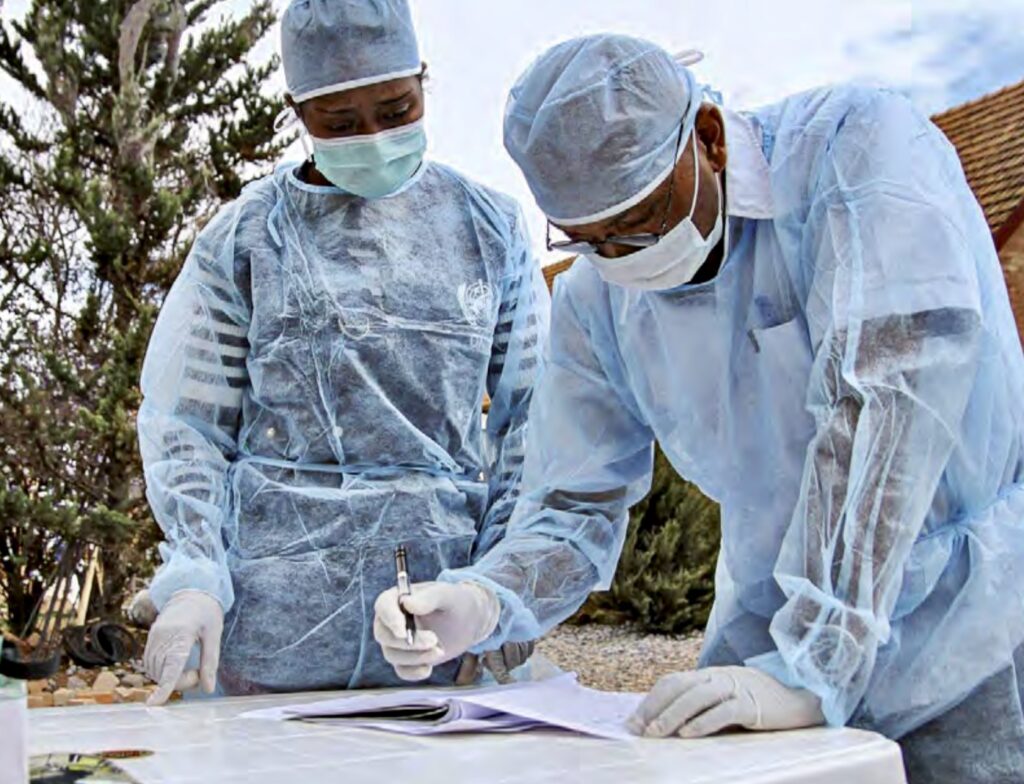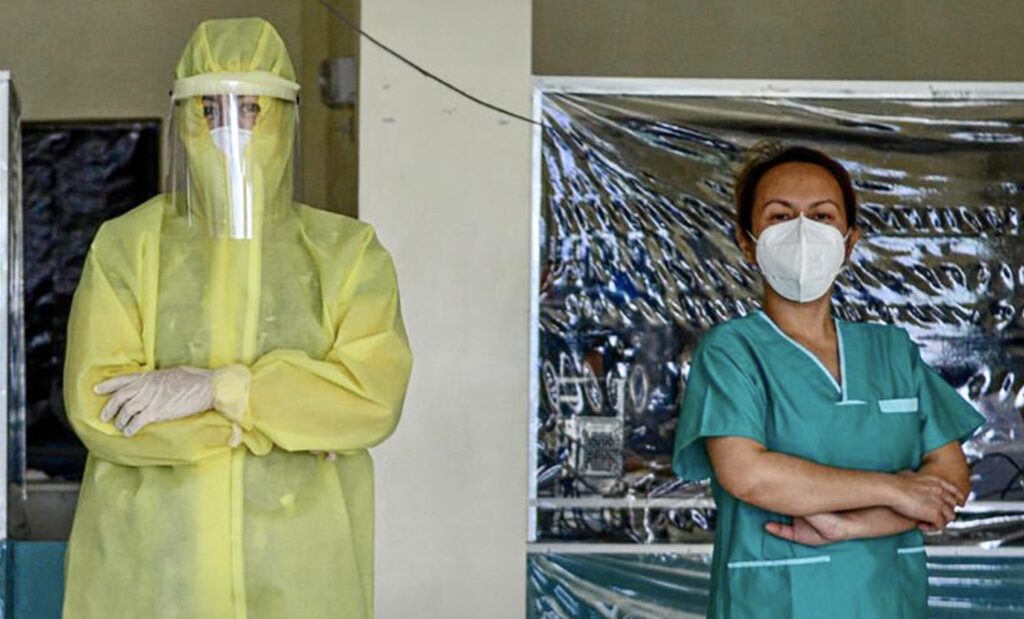Written by Henrylito D. Tacio
In 2018, Typhoon Ompong tore a path of destruction across the northern part of the Philippines. Known internationally as Mangkhut, the typhoon made landfall in Baggao, Cagayan on September 15 with wind topping 250 kilometers per hour and caused storm surges, flash floods and landslides.
The typhoon brought back memories of one of the strongest tropical cyclones ever recorded that also struck the country: Super Typhoon Yolanda. Known internationally as Haiyan, the storm ripped through the central Philippines in 2013, killing 6,300 people and injuring 28,000 more. Damages totalled more than US$2 billion, including more than 2,000 health facilities that were damaged or destroyed.
History would have repeated itself. But the country already learned its lessons. It was better prepared this time. The Philippine Atmospheric, Geophysical and Astronomical Services Administration hoisted tropical cyclone warning signals as early as September 13. Preemptive and forced evacuations were implemented, especially in the Ilocos, Cagayan Valley and Cordillera administrative regions.

For its part, the Department of Health acted swiftly, activating emergency disease surveillance and immediately deploying staff, medicines and supplies to the region. Relief goods were already prepared two days before the typhoon made a landfall.
By September 22, the National Disaster Risk Reduction and Management Council confirmed that the typhoon had caused the death of 127 people; 80 of those deaths occurred in the collapse of a small mine in the town of Itogon, Benguet, where dozens of landslides buried homes.
In a way, luck may also have played a part as to why the death toll was not that hefty despite the fact that Typhoon Ompong was the world’s third-strongest tropical cyclone that year. The path of the typhoon was far north, in a less populated area that is somewhat sheltered by mountains.
“In any outbreak or emergency, some factors will always be beyond human control and unique to the event,” said the United Nations health agency in a statement. “What is certain, however, is that careful preparedness and rapid response can limit loss of life, societal disruption and economic losses.”
In his book Connections, James Burke wrote: “Why should we look to the past in order to prepare for the future? Because there is nowhere else to look.” To which American statesman Benjamin Franklin added, “By failing to prepare, you are preparing to fail.”
It’s not only for natural disasters that the world should be prepared – even for epidemics. For the first time in history, the world is observing the International Day of Epidemic Preparedness last December 27. It was called for by the United Nations General Assembly to advocate the importance of the prevention of, preparedness for and partnership against epidemics.
“The COVID-19 pandemic has underscored the importance of investing in systems to prevent, detect and respond to infectious disease outbreaks,” the WHO said of the coronavirus disease 2019 that is wreaking havoc around the globe.
“With COVID-19 having now killed more than 1.7 million people, devastated economies, upended societies and exposed the world’s vulnerabilities in the starkest ways, the value of health emergency preparedness has hit home like never before,” said UN Secretary General Antonio Guterres.
“As we strive to control and recover from the current pandemic, we must think about the next,” he continued. “Unfortunately, it is easy to imagine a virus just as infectious but even more lethal.”

In a press statement, Guterres said the world can already draw many lessons from the experiences of the past.
“Preparedness is a sound investment, costing far less than emergency expenditures,” he pointed out. “Societies need stronger health systems, including universal health coverage. People and families need more social protection. Communities on the frontlines need timely support.”
The UN official suggested that “more effective technical cooperation” among countries is needed. “And we need to pay greater attention to the encroachment of people and livestock into animal habitats; 75% of new and emerging human infectious diseases are zoonotic.”
All these must be done in a scientific manner, he pointed out. “Across this work, science must be our guide,” Guterres stressed. “Solidarity and coordination are crucial, within and among countries; no one is safe unless all of us are safe.”
As such, it is necessary to raise awareness on epidemics on a certain day of every year.
“In the event of the absence of international attention, future epidemics could surpass previous outbreaks in terms of intensity and gravity,” the WHO said in a statement. “There is great need of raising awareness, the exchange of information, scientific knowledge and best practices, quality education, and advocacy programs on epidemics at the local, national, regional and global levels as effective measures to prevent and respond to epidemics.”
The International Day of Epidemic Preparedness falls on the birthdate of Louis Pasteur, the French biologist for ground-breaking work on vaccinations.
“In honoring his work, I salute today’s medical professionals, front-line personnel and essential workers who have carried the world through this emergency with such remarkable commitment,” Guterres said. “As we recover from the pandemic, let us resolve to build up our prevention capacities so that we are ready when the world faces the next outbreak.”
Meanwhile, a new strain of COVID-19 – which is potentially 70% more contagious than earlier ones – has been reported. On December 14, British authorities told the WHO that a new variant had been identified.

The WHO, regarding the United Kingdom strain, issued this statement: “There is not enough information at present at present to determine if this variant is associated with any change in (the) severity of clinical disease, antibody response or vaccine efficacy.”
Among the countries where the mutated virus has been reported include Japan, Singapore, Hong Kong and Australia.
Another COVID-19 variant, different from the one unearthed in the UK, was reported in South Africa.
Because of this new development, President Rodrigo R. Duterte approved the extension of the travel ban for flights from the UK for another two weeks; the ban is originally set to expire on December 31.

